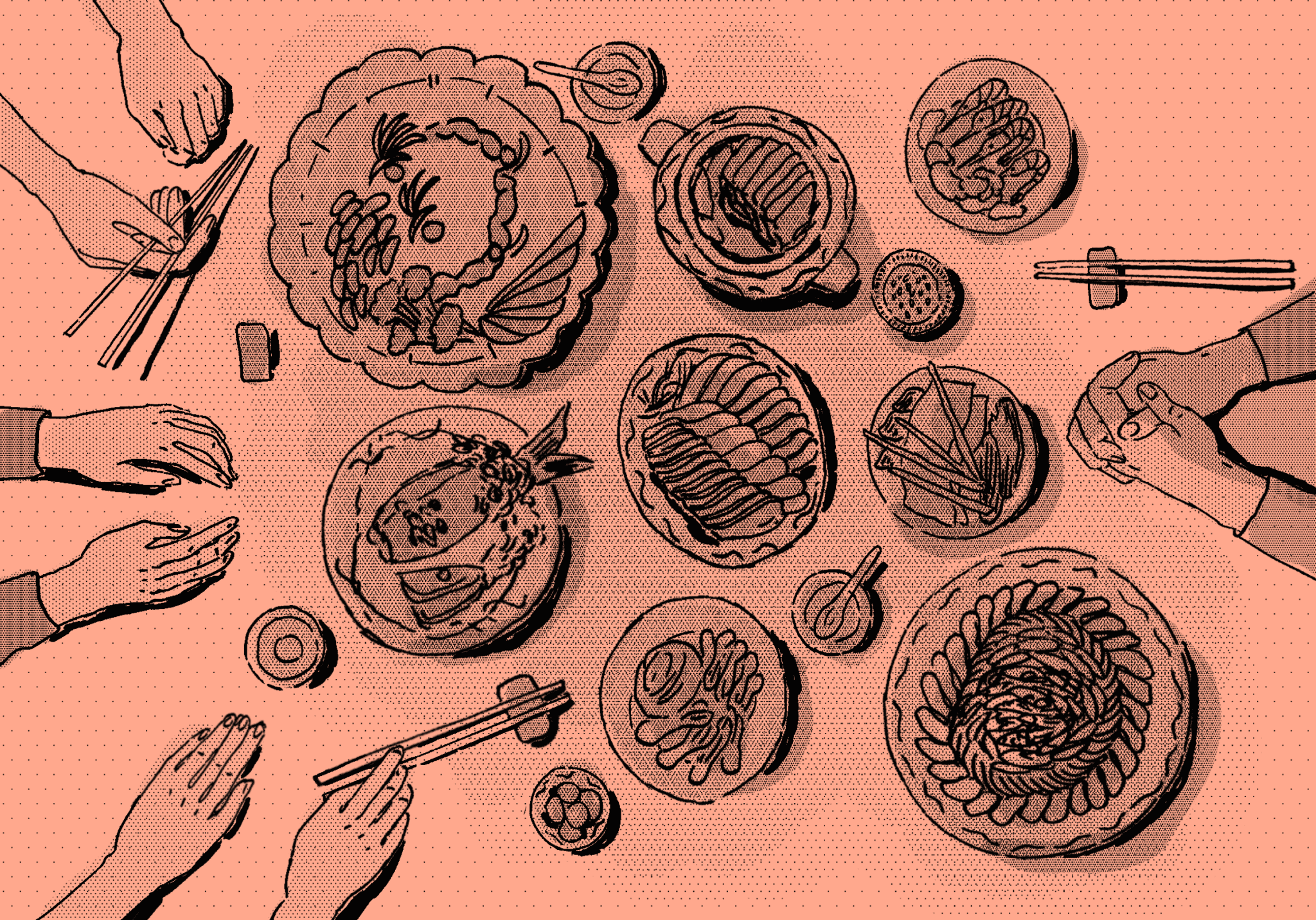“I don’t understand any of them and I don’t want to know. Let them grow up and leave.” During a frank conversation with an old friend, Tao Chu – an ageing semi-retired chef and father – confesses his true heart. Chu and his friend sit in the kitchen after a gruelling cook for the wedding of a governor’s son. At the end of it, the sunken atmosphere of the kitchen draws out the blunt confession to his friend.
The 1994 Taiwanese film Eat Drink Man Woman directed by Ang Lee uses food as a recurring motif to explore three sisters and their father’s experience of family life in the 1990s. All three sisters are deeply consumed by their own lives, neglecting their father’s happiness in their adulthood. Their Sunday dinners are the only time they spend together but the enticing spread of food is never enough to fill in the gaps between conversation and their relationships with each other.
Every week, they face each other at the dinner table unwillingly – but as awkward as the dinners may be, they are the backbone of family life.
The youngest of the sisters, 20 year old Jia Ning, works at Wendy’s and is romantically involved with her friend’s boyfriend. Jia Chien, the middle child, works at an airline company and navigates different romantic affairs, while the eldest, Jia Jen, is characterised as a spinster traumatised by a past relationship, who becomes interested in the new volleyball coach at the school where she teaches. Their father, who occasionally gets called into work to divert a kitchen crisis, spends his time alone cooking for his neighbour’s young daughter. Like this, the four family members live distant lives.
The film points to the speed of globalisation during the ‘90s, reflected in the version of Taiwan where it is set. During this era, what it meant to be Taiwanese involved a life intertwined with foreign people, cultures, languages and ways of doing; Taiwan was welcoming international business and western cultural exports. At the beginning of the film, a foreign customer is seen complaining to a worker about his order at the Wendy’s joint where Jia Ning works and the customer and worker have trouble communicating due to language barriers. Later on, we see Jia Ning attending a French language class, and Jia Chien, who works for an airline company, contemplates whether to take up a promotion that would see her work in Amsterdam.
Further, Eat Drink Man Woman points to the misconception that the scale of global changes are so grand that they have no direct impact on our personal lives. In fact, the repercussions of globalisation reverberate throughout the trajectory of family life, traversing between the public and intensely personal. Through the sisters, the film critiques the demanding and all-consuming nature of modern life, wherein individuals often choose to focus on themselves rather than others.
Indeed, amongst all the trivialities demanding their attention, the Sunday family dinners become a scheduled burden on the sisters. When they gather, the sisters share their disinterest in being there between themselves, but do not express it in front of their father. A banquet is laid out in front of them but all it attracts from the sisters is petty criticism – whether it be the oversmoking of the ham in the soup or lack of shrimp paste. Although all four make half-hearted conversation, it is clearly all a bit pretend, like the make-believe games of happy families most of us played as kids. In childhood, we assigned ourselves a role – the mother, the father, the younger sibling – and everyone knew to act accordingly. The family in Lee’s film follows the same premise.
In our own lives, some may do away with a routine mealtime and lacklustre conversation under the conviction that this experience of family life is just a memory from the time gone by in childhood. If the family members are busy with other people and priorities, why commit to the routine? If conversation remains lifeless or, on the other end of the spectrum, explodes into conflict, why is it still important?
However, Lee’s film showcases how family mealtimes should not be overlooked for what awkwardness or conflict ensues. Against the backdrop of ‘90s Taiwan, with its emerging forces of globalisation and modernity threatening to fracture the customs that have long governed family interactions in East Asian culture, it illustrates how a meal may be all it takes to bring us away from these external forces.
Eat Drink Man Woman reminds us that we are part of something small yet precious like family. Though it may feel like a burden, the predetermined roles of family mealtime that we unquestioningly participated in as kids are transformed into necessary actions which sustain those irreplaceable bonds. Perhaps then, we may not see ourselves reflected in the blunt confessions of Tao Chu.





